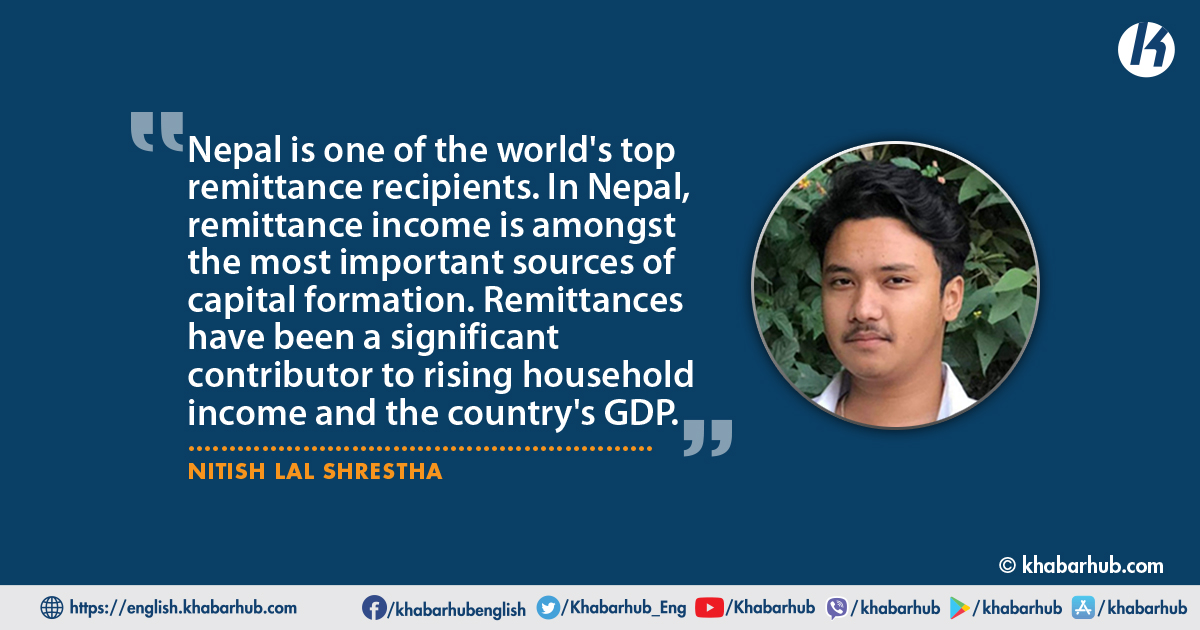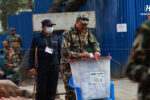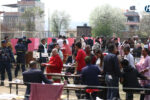In Nepal, international migrant workers have been a major contributor to the national and household economies lately. A significant number of households are completely dependent on remittance.
People are forced to migrate internationally and work at any cost as a result of the country’s unemployment and lack of opportunities.
As a result, Nepal is one of the world’s top remittance recipients. In Nepal, remittance income is amongst the most important sources of capital formation.
Remittances have been a significant contributor to rising household income and the country’s GDP. That being said, Nepal has to carry three dead bodies per day on average of these migrant workers, which is a terrible shame.
Nepal’s economy is heavily dependent on remittances, reflecting a growing labor migration. People living in poverty make up the majority of the population migrating as laborers as a result of economic instability, lack of jobs, uneven income distribution, and other factors.
The government’s treatment of migrant workers has always been degrading and insulting. We can see how the government views these workers from the labor permit procedure to their actions in the airport.
These workers have not only contributed to the nation’s remittances, but they have also been of great help during tough times in the county, such as the current situation in Covid-19.
Nepali migrant workers in West Asia have rushed to the rescue of their country, which has been devastated by the second wave of Covid-19.
Despite being left out during the first wave of Covid019 by the government and the government’s lack of loyalty in repatriating them, migrant workers have been very thoughtful of the nation.
On May 16, 2021, the Minister of Health and Population received 560 oxygen cylinders delivered in collaboration with the Non-Resident Nepali Association (NRNA) and the Nepali Mission in Muscat, Oman.
The cylinders were purchased with funds raised in the Middle East with the support of Nepali workers. In addition, NRNA President said that 670 oxygen concentrators will be delivered soon.
Similarly, 150 Nepali in Kuwait has collected well over $10,000 to help Nepal in whatever way they can.
Although the government came up with the repatriation mission later, they were still inconsiderate on the eligibility of undocumented workers who couldn’t afford return fares.
Similarly, during the earthquake in 2015, the NRNA raised NPR 267 million for earthquake relief and reconstruction, mobilized a large number of volunteers, including doctors and nurses, and contributed in many sectors for the recovery of the country.
From the devastating earthquake to the deadly Covid-19, Nepali migrants have always stood by their country and assisted in every way they could. Their patriotism for the nation is evident and greatly appreciated.
The bitter truth is that, despite all of these contributions, the government has nothing to deliver these migrants, particularly migrant labor.
The government’s treatment of migrant workers has always been degrading and insulting. We can see how the government views these workers from the labor permit procedure to their actions in the airport.
These staffs are subjected to the same scrutiny as criminals at the airport; sad but true. Repeated checks of the same papers, mistreatment, and suspicion are just a few of the unpleasant things that happen at the airport and other concerned organizations.
On the one hand, the government is unable to provide employment and opportunities in the county, while on the other hand, it is unable to establish an atmosphere in which these individuals can access convenient paperwork and other procedures for foreign employment.
In both ways, the government has failed. Given the fact that the majority of them are poor, their problems are largely ignored.
Even the response of the government towards them after they face any sort of problem in their working nation is close to zero.
Even when they encounter a minor problem in their destination, the government’s response is almost non-existent.
Not just that, but the government should establish an effective foreign employment policy for Nepali workers, authorizing them to work in several countries while receiving a great wage and ensuring their safety and security.
When the stranded Nepali workers sought help from the government last year, they never received a realistic response, nor did the government take steps to repatriate them on time.
Although the government came up with the repatriation mission later, they were still inconsiderate on the eligibility of undocumented workers who couldn’t afford return fares.
As a result, very were rescued while others were helplessly left. This demonstrates the government’s ignorance and ungratefulness toward the same group of citizens who have been contributing to the economy by remittances.
Hence, the government should improve rules and regulations to ensure that workers are protected in these situations.
Not just that, but the government should establish an effective foreign employment policy for Nepali workers, authorizing them to work in several countries while receiving a great wage and ensuring their safety and security.
It is also vital for the government to improve its attitude toward migrant workers and treat them with the same respect as other citizens; they deserve it.








Comment